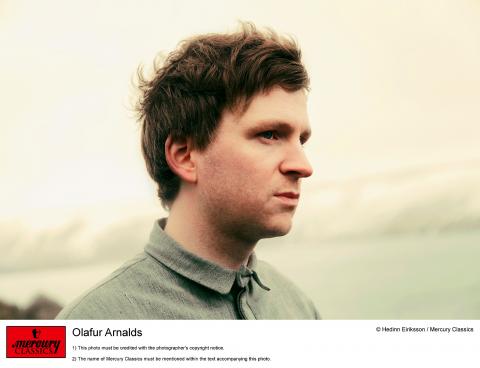Music is about seeking a connection. A connection between audience and performer, crowd member to crowd member. The more powerful the performance, the deeper the connection. And the more real the source of the music, the more genuine the experience. Dread Rider, a Taiwan-based reggae act, is a band whose music comes from a place both real and raw: the life experience of singer Sherwyne Pereira, a native of Trinidad who settled in Greater Taichung in 2008. Though he now lives the stable life — he’s married with two young children — Pereira came up the hard way in his homeland. In other words, when he sings original songs like I Grew Up in the Ghetto, he’s not just riffing on the apocryphal. He’s baring his soul.
“I really grew up in the ghetto, man,” says the impassioned frontman. “When I sing in the song, ‘In the ghetto, ain’t no paradise, every day we had to eat black-eyed peas and rice,’ it’s the truth. We try to deal more with truth in the music and we go with what feels right.”
Dread Rider, which performed under the name Wailin’ Soul until earlier this year, was born in 2008 when drummer Hanro “Jubba” Van Wyk was playing at 89K in Greater Taichung with his old funk band, the now-defunct Moneyshot Horns. Pereira was in the crowd, and the band got him up on stage for an impromptu jam. Guitarist Russel Rodgers was also in the crowd that night, and liked what he heard. He approached Sherwyne after the gig, told him he was looking to put together a roots/reggae act, and got the singer on board. Van Wyk, a seasoned performer who prior to moving to Taiwan from his native South Africa had already played massive shows such as the Isle of Wight Festival and Belgium’s Pukkelpop, would join following some lineup shuffles. The current four-piece is now rounded out by French bassist Cyrille Briegel, one of the most in-demand live and session musicians in Taiwan.

Photo courtesy of Johan Vosloo
Over time, the Dread Rider sound grew to incorporate elements of hip-hop, dancehall and R&B. A couple of months ago, after about a year and a half worth of stops and starts with recording and post-production work, the band finally got to experience the delayed gratification of self-releasing its first album, a self-titled disc. Listen to the songs on the record, and it quickly becomes clear these are serious players we’re talking about. After doing time in various bands over the years in Taiwan, this is exactly the scenario Van Wyk has been looking for. If there’s a way back to the big stage, it’s with this group of musicians. But even though he’s already put in the time, he’s still prepared to invest even more if it means taking Dread Rider to the status of full-time band.
“If we can just do music,” Van Wyk considers, “I would be the happiest man alive. But even if it’s not like that and I have to keep on working, even if it takes another 10 years, I will keep on doing it. It’s my chosen path. We want to be heard.”
Van Wyk and Pereira have reason to be optimistic about the future of Dread Rider, as there are big things on the horizon. Tomorrow night the band will perform at Sappho Live in Taipei in what could be seen as a tune-up for the band’s biggest gig to date, a huge night of reggae at Legacy (音樂展演空間) on Oct. 12 featuring the likes of Hang in the Air (盪在空中), the O-Brothaz and Skaraoke. Dread Rider is expecting a big turnout, but regardless of how many people show up, one thing is certain. There will be a connection, and it will be real.

Photo courtesy of Hedinn Eriksson/Mercury Classics
“Every show, whether it’s a hundred people or a thousand, we always get the people involved in what we’re doing,” says Pereira. “Even if they don’t know what the hell we’re talking about, we’ll get them to sing an ‘ooh’ or an ‘ah.’ Something universal that we can all reach and connect. We bring it. I don’t play around.”
Dread Rider plays tomorrow night at Sappho Live, B1, 1, Ln 102, Anhe Rd Sec 1, Taipei City (台北市安和路一段102巷一號B1). The show starts at 9:30pm, and the cover charge is NT$200.
■ Also appearing tomorrow night in Taipei is Icelandic multi-instrumentalist Olafur Arnalds. Though the man from Mosfellsbaer comes from a metal and hardcore background, his current sound couldn’t be further from where he started his musical journey. How he went from the immediate bursts of unchecked anger of his previous bands to his current form of expression — soft, free-flowing instrumental pieces with sparing vocals, ethereal electronics, minimalist strings and melancholic piano — was a bit of an accident. German metalcore act Heaven Shall Burn originally approached the 26-year-old in 2004 to compose intro and outro pieces for their upcoming album, Antigone. Months later, a record label asked Arnalds if he would be interested in composing an entire album of songs similar to the pieces he had just made for Heaven Shall Burn.
“I didn’t really know what I was doing,” Arnalds explains, “but I think that’s a good thing. If I had been more aware of my abilities, and lack thereof, I may have been more reserved. But especially coming from the background which I did, where it doesn’t matter what you can do, but only what you do, it was easy for me to jump on this opportunity.”
Tomorrow, fans in Taipei will have a chance to get swept into the soundscapes of Arnalds’ latest album, For Now I Am Winter. Expect an evening of equal parts introspection and muted wonder.
Olafur Arnalds plays tomorrow night at The Wall (這牆), B1, 200, Roosevelt Rd Sec 4, Taipei City (台北市羅斯福路四段200號B1). Tickets are NT$1,200 in advance, NT$1,500 at the door. Doors open at 7pm, and the show starts at 8pm.

President William Lai (賴清德) yesterday delivered an address marking the first anniversary of his presidency. In the speech, Lai affirmed Taiwan’s global role in technology, trade and security. He announced economic and national security initiatives, and emphasized democratic values and cross-party cooperation. The following is the full text of his speech: Yesterday, outside of Beida Elementary School in New Taipei City’s Sanxia District (三峽), there was a major traffic accident that, sadly, claimed several lives and resulted in multiple injuries. The Executive Yuan immediately formed a task force, and last night I personally visited the victims in hospital. Central government agencies and the

Australia’s ABC last week published a piece on the recall campaign. The article emphasized the divisions in Taiwanese society and blamed the recall for worsening them. It quotes a supporter of the Taiwan People’s Party (TPP) as saying “I’m 43 years old, born and raised here, and I’ve never seen the country this divided in my entire life.” Apparently, as an adult, she slept through the post-election violence in 2000 and 2004 by the Chinese Nationalist Party (KMT), the veiled coup threats by the military when Chen Shui-bian (陳水扁) became president, the 2006 Red Shirt protests against him ginned up by

As with most of northern Thailand’s Chinese Nationalist Party (KMT) settlements, the village of Arunothai was only given a Thai name once the Thai government began in the 1970s to assert control over the border region and initiate a decades-long process of political integration. The village’s original name, bestowed by its Yunnanese founders when they first settled the valley in the late 1960s, was a Chinese name, Dagudi (大谷地), which literally translates as “a place for threshing rice.” At that time, these village founders did not know how permanent their settlement would be. Most of Arunothai’s first generation were soldiers

Among Thailand’s Chinese Nationalist Party (KMT) villages, a certain rivalry exists between Arunothai, the largest of these villages, and Mae Salong, which is currently the most prosperous. Historically, the rivalry stems from a split in KMT military factions in the early 1960s, which divided command and opium territories after Chiang Kai-shek (蔣介石) cut off open support in 1961 due to international pressure (see part two, “The KMT opium lords of the Golden Triangle,” on May 20). But today this rivalry manifests as a different kind of split, with Arunothai leading a pro-China faction and Mae Salong staunchly aligned to Taiwan.